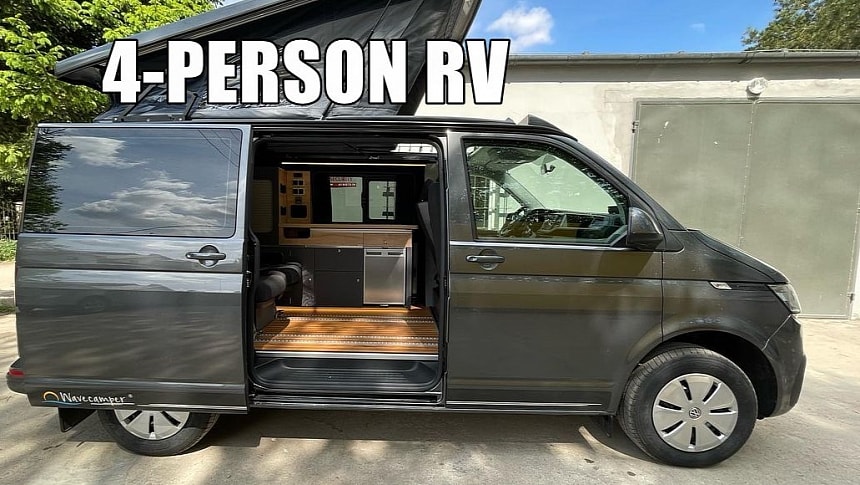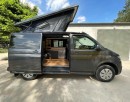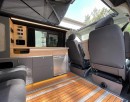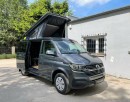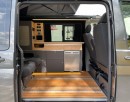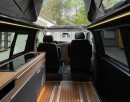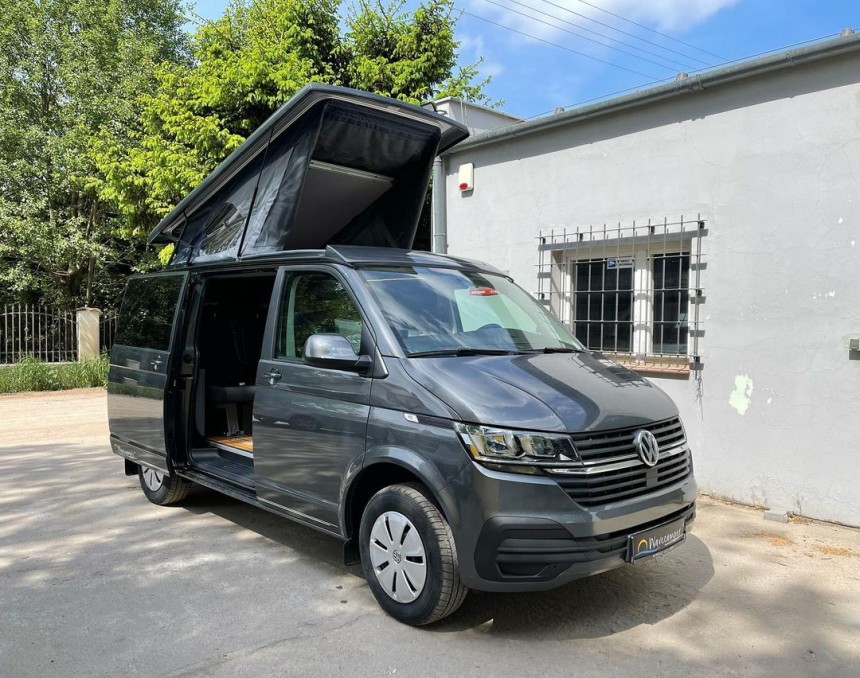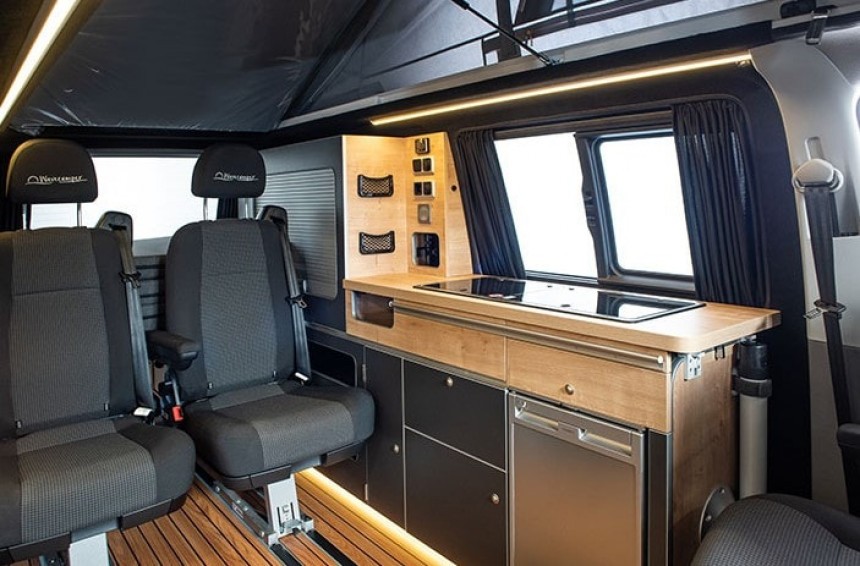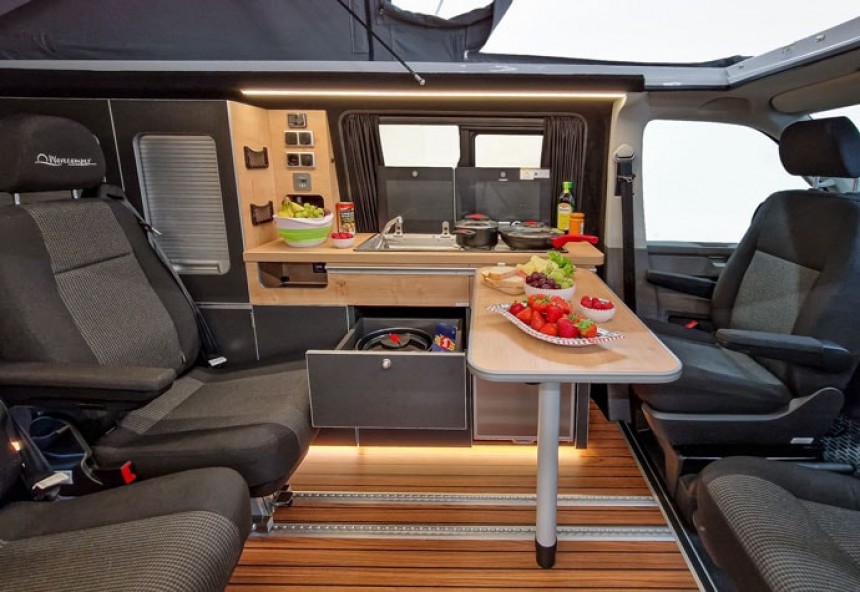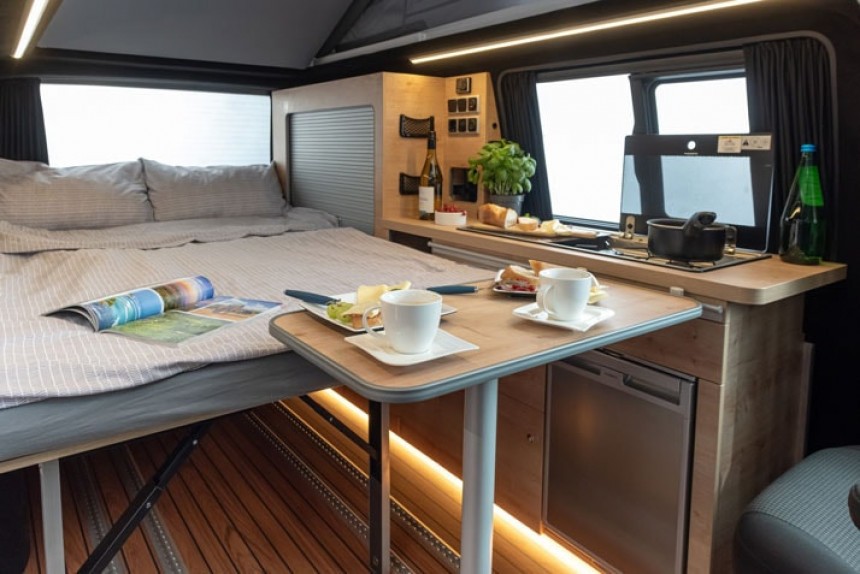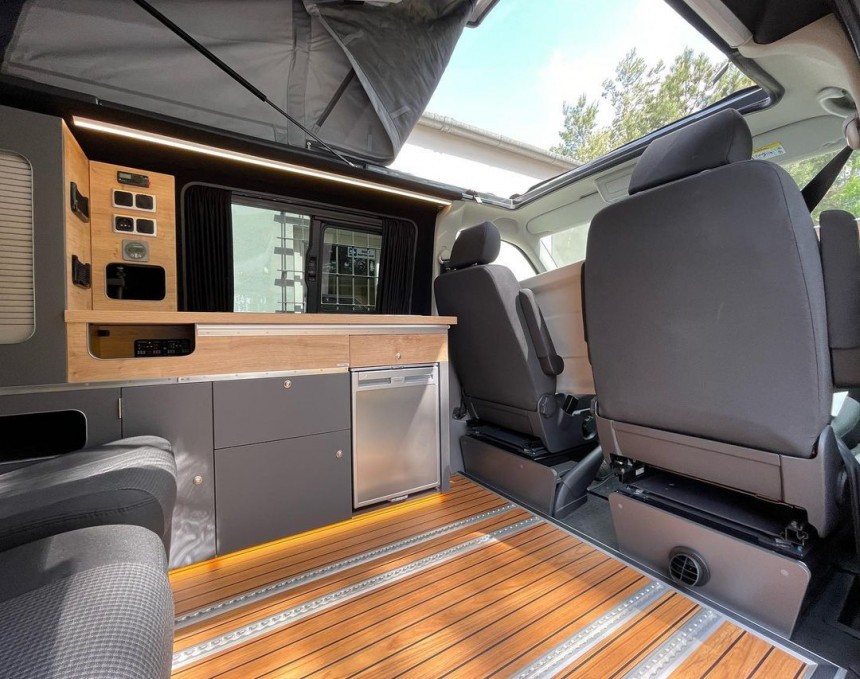Unless you have a lot of free time on your hands and also happen to be very skilled in working with them (*the hands), a DIY (do-it-yourself) van conversion can only make for an entertaining watch on your phone, as you sip your morning cup of coffee. And that's precisely what builders like this one are betting on.
Vanlife has been around for decades, much like its fancier sibling, tiny living. Both took off as the social restrictions of 2020 went into effect, and people suddenly found themselves barred from taking the usual family vacations, which implied boarding a plane and heading out to some exotic destination. Instead, they had to make do with old-school family vacations in family RVs or road trips in the daily driver.
The Internet helped take vanlife from just another vacation alternative to the hottest, life-altering fad to spread through the socials. The most widespread approach to this new lifestyle seems to be the DIY way, where you use an existing van and do the conversion yourself, with help from the community. Buying a complete conversion from a specialist is also popular, but it obviously costs more.
In both cases, you lose the everyday functionality of the vehicle, and this is where a builder like the Polish Wavecamper comes in. The approach isn't new and consists of adding modules to a cargo or everyday van to turn it into an RV and then removing them to use the vehicle as before. What Wavecamper does differently is the way it attaches these modules.
Wavecamper does van conversions, mostly VWs and Renaults, both in short and long wheelbase. They use new or pre-owned vehicles for the conversions, which have the advantage of surprising multi-functionality. The 2025 VW Bulli Short they've been showing at trade events this year is a brilliant example of the kind of work they do.
As Wavecamper puts it, this is how you unlock a new stage of vanlife. Built on a Volkswagen T6.1 Short, the RV measures just 4.9 meters (16 feet) in total length, but it's perfectly capable of offering sleeping for four people (adults, no less!) and seating for four to six people in belted seats.
And that's not all, obviously. Inside, this van conversion packs a full kitchen, minimal bathroom facilities, a dining area that can serve as a mobile workspace or even a conference room, and comfy beds that only pop up when you need them. There's also plenty of storage for clothes, foodstuffs, and even larger items like surfboards or bicycles, and it's all wrapped up in a nice, quite elegant package.
The key to fitting this much functionality in such a compact space is modularity. You're not going to get to enjoy all these features at once, so switching between day or night mode, camp or transport mode will take some adjustment, crouching down to add or remove stuff, and some patience.
As the official video presentation included at the bottom of the page shows, the transitions are neither difficult nor particularly time-consuming.
Wavecamper puts the rear row of seats on rails on the floor, which, unsurprisingly, can also be used to secure extra gear during transport. You can add a second row of seats as an option, thus increasing passenger capacity to six, including the driver.
In camp mode, the front seats swivel to face the cabin and the rear seats tuck away under the bed that folds out like an accordion.
The kitchen takes up most of the central part on the driver's side and remains usable even when you have the bed folded out or the seats in place. It's very compact, but it still offers a two-burner Dometic stove, a sink, a 45-liter (1.6 cu-ft) compressor fridge with a freezer, and plenty of storage. One of the storage cupboards holds a chemical toilet, which makes up part one of the bathroom facilities available onboard. Part two is a handheld shower you can attach to the tailgate door.
Both kitchen and restroom facilities are basic, but they will do for a weekend getaway with the family. Presumably, the goal of such an outing is to get out more into nature and not spend time inside the RV. To that end, the VW Short offers two dining tables, a smaller one that can be used indoors and a larger one you can set up outside, which tucks into the sliding door when you don't need it.
The second bed is up in the tent roof, which is fairly standard. You get bug screens, opening flaps, a comfy mattress, and LED lighting, and that's about it. But it's a space that can sleep two more adults, off the ground and protected from the elements.
The highlight of any Wavecamper build, including the VW Short, is the ability to remove everything but the kitchen when you need to use it for hauling cargo or doing the kids' school drop-off. You simply dismantle the bed slats and store them in the garage, and remove the seats if you don't need them, and you get a daily driver with cargo-carrying capability. The kitchen is too compact to actually be much of a hindrance.
Features include a Webasto space heater and a solar system for charging the auxiliary battery. Despite the promise that "anyone can become a master chef" in the Wavecamper kitchen, the builder doesn't mention anything about the size of the water tanks.
This brings us full circle to the earlier note that a full, brand-new van conversion will cost you more than if you go down the DIY route. A unit of the WV Short like the one shown below is over €95,000, so approximately $100,200 at the current exchange rate.
The Internet helped take vanlife from just another vacation alternative to the hottest, life-altering fad to spread through the socials. The most widespread approach to this new lifestyle seems to be the DIY way, where you use an existing van and do the conversion yourself, with help from the community. Buying a complete conversion from a specialist is also popular, but it obviously costs more.
In both cases, you lose the everyday functionality of the vehicle, and this is where a builder like the Polish Wavecamper comes in. The approach isn't new and consists of adding modules to a cargo or everyday van to turn it into an RV and then removing them to use the vehicle as before. What Wavecamper does differently is the way it attaches these modules.
As Wavecamper puts it, this is how you unlock a new stage of vanlife. Built on a Volkswagen T6.1 Short, the RV measures just 4.9 meters (16 feet) in total length, but it's perfectly capable of offering sleeping for four people (adults, no less!) and seating for four to six people in belted seats.
And that's not all, obviously. Inside, this van conversion packs a full kitchen, minimal bathroom facilities, a dining area that can serve as a mobile workspace or even a conference room, and comfy beds that only pop up when you need them. There's also plenty of storage for clothes, foodstuffs, and even larger items like surfboards or bicycles, and it's all wrapped up in a nice, quite elegant package.
As the official video presentation included at the bottom of the page shows, the transitions are neither difficult nor particularly time-consuming.
Wavecamper puts the rear row of seats on rails on the floor, which, unsurprisingly, can also be used to secure extra gear during transport. You can add a second row of seats as an option, thus increasing passenger capacity to six, including the driver.
The kitchen takes up most of the central part on the driver's side and remains usable even when you have the bed folded out or the seats in place. It's very compact, but it still offers a two-burner Dometic stove, a sink, a 45-liter (1.6 cu-ft) compressor fridge with a freezer, and plenty of storage. One of the storage cupboards holds a chemical toilet, which makes up part one of the bathroom facilities available onboard. Part two is a handheld shower you can attach to the tailgate door.
Both kitchen and restroom facilities are basic, but they will do for a weekend getaway with the family. Presumably, the goal of such an outing is to get out more into nature and not spend time inside the RV. To that end, the VW Short offers two dining tables, a smaller one that can be used indoors and a larger one you can set up outside, which tucks into the sliding door when you don't need it.
The highlight of any Wavecamper build, including the VW Short, is the ability to remove everything but the kitchen when you need to use it for hauling cargo or doing the kids' school drop-off. You simply dismantle the bed slats and store them in the garage, and remove the seats if you don't need them, and you get a daily driver with cargo-carrying capability. The kitchen is too compact to actually be much of a hindrance.
This brings us full circle to the earlier note that a full, brand-new van conversion will cost you more than if you go down the DIY route. A unit of the WV Short like the one shown below is over €95,000, so approximately $100,200 at the current exchange rate.
